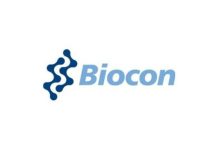Henkel has partnered with Sasol to significantly reduce the environmental footprint of hot melt adhesives, marking a major step toward more sustainable consumer goods. Through this collaboration, Henkel is incorporating Sasol’s SASOLWAX LC range into its TECHNOMELT® portfolio across Europe, India, the Middle East, and Africa.
SASOLWAX LC: A Low-Carbon Drop-In Solution
At the heart of the initiative is SASOLWAX LC100, a wax produced using Sasol’s enhanced Fischer-Tropsch process, which delivers a 35% reduction in product carbon footprint (PCF) compared to traditional formulations. Designed as a drop-in alternative, the wax can be seamlessly integrated into existing production lines without compromising performance or quality.
Supporting Henkel’s Climate Goals and Science-Based Targets
Henkel’s partnership with Sasol directly supports its ambition to cut greenhouse gas (GHG) emissions by 30% by 2030 and aligns with its commitment to the Science Based Target initiative. Sasol developed the PCF assessment methodology for SASOLWAX LC to adhere to international standards, including ISO 14040, 14044, and 14067, and secured an independent review to ensure credibility and transparency.
Enabling Sustainable Choices Across the Value Chain
Corbett Wallace, Corporate Vice President of Consumer Goods at Henkel Adhesive Technologies, “As demand grows for more sustainable consumer goods, our collaboration with Sasol allows brands to achieve their environmental goals without trade-offs in quality or performance. Together, we are enabling smarter, more responsible choices across the value chain.”
Roadmap to Deeper Emission Reductions
David Mokomela, Senior Vice President of Chemicals Marketing and Sales at Sasol, highlighted, “The SASOLWAX LC range, with a 35 per cent PCF reduction, is only the first step in a broader roadmap toward further significant reductions.” Looking ahead, the partnership will also explore the use of renewable and recycled feedstocks, leverage Sasol’s advanced synthesis capabilities, and pursue new innovations in sustainable adhesives.
Driving Climate Action and Supply Chain Transparency
Henkel and Sasol are advancing low-carbon adhesive technologies. This empowers consumer brands to meet climate targets and enhance supply chain transparency. It also helps accelerate the shift toward a circular, low-emission economy. As reported by manufacturingtodayindia.com, the collaboration sets a strong precedent. It shows how cross-industry partnerships can deliver impactful environmental outcomes at scale.

































